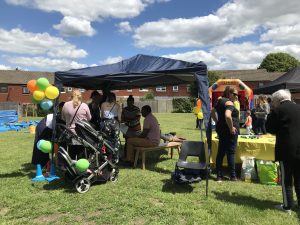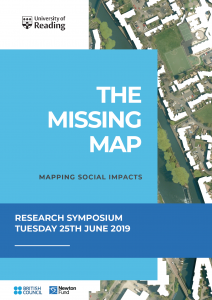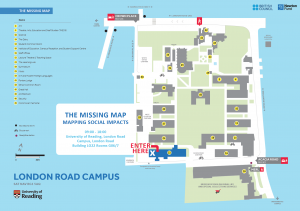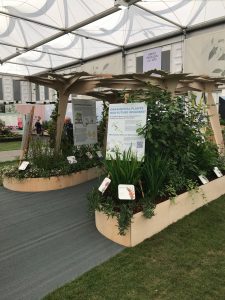By Jacopo Torriti
‘Flexibility of Electricity Demand: the role of pricing and automation’
Workshop, Westminster, 6th February 2019
Our ‘Flexibility of Electricity Demand: the role of pricing and automation’ workshop in Westminster was an opportunity to present some preliminary findings of our DEePRED and REDPeAK projects and have discussions around other projects on flexibility in terms of automation and pricing. The event brought together diverse academics, companies and policymakers, with speakers from Italy and Spain.
Preamble
There is much ado about how demand-side flexibility is a win-win solution as consumers will help balance the grid in return for lower bills if they take advantage of smart tariffs and automation. The workshop explored ideas flexibility of electricity demand, the implications of dynamic pricing and automation. We wanted to exchange ideas with people who work on different aspects relating to dynamic pricing and automation. Or at least this was the idea when we set up the workshop. The people who came contributed massively and so we collected their reasons for coming to the workshop and visually this is what they look like:

At the beginning
[folder-gallery fid=”14″ link=”file” columns=”4″ orderby=”rand”]
We presented an overview of our research as part of our DEePRED and REDPeAk projects. We emphasised the importance of focusing research on people’s activities (and not only kWh!).
Demand-side flexibility will evolve via a mix of pricing and automation, but the work we have done focuses on the role of people’s activities. Angela Love (Elexon) set the scene on the national importance of demand flexibility for balancing demand and supply in the grid. She explained that decarbonisation, decentralisations, digitalisation and democratisation are driving the electricity system of the future. The changing nature of demand peaks is one of the reasons why balancing demand and supply will present different challenges in the future, compared with the present.
Stew Horne’s (Citizen Advice) presentation was evocatively titled: ‘Let’s have flexibility that works for consumers, not flexible consumers’. He emphasised the importance of ensuring that higher levels of demand-side flexibility do not negatively affect consumers. Stew mentioned the fact that flexibility is not a priority or concern for consumers at the moment. At the same time, they spend about £30-£40 every year on significant peak consumption.
We then had five presentations across two parallel session, which examined the various approaches to energy demand flexibility applied in different contexts.
In the middle
[folder-gallery fid=”15″ link=”file” columns=”4″ orderby=”rand”]
Pricing
The pricing session chaired by Dr Michael Fell (UCL) included presentations from Alicia Mateo Gonzalez (Endesa), Giulia Privitera (UK Power Networks) and Charlie Edwards (Scottish & Southern Electricity Networks). The presenters walked through key components and methodologies for incorporating pricing aspects into flexibility. Interesting questions were asked by the audience regarding the assessment framework of flexibility and how innovative technologies could have an impact on flexibility of demand.
The effects of time-of-use pricing in Spain was presented by Alicia. She spoke in detail about the barriers and opportunities from a retailer perspective. Giulia Privitera underlined the importance of the infrastructure for demand-response flexibility. She discussed how flexibility can be obtained from the lower-income houses and gave evidence and insights from the project conducted by UK Power Networks in Tower Hamlets.
Charlie Edwards presented high-level overview of the SAVE project. He spoke in depth regarding energy efficiency measures which can be regarded as a cost-effective, predictable and sustainable tool for managing peak demand, as an alternative to network reinforcement and most effective channels for eliciting energy efficient behaviour with different types of customers.
Automation
The session on automation focused on understanding flexibility and responsiveness of electricity demand by recognising the contextual, material and social dimension of the demand.
Mitchell Curtis (Upside Energy) presented on automating demand response in hotels and homes. In his presentation he showed that in the hotels air-conditioning has the highest load flexibility, but this depends on issues of comfort, controllability and size. In the second part of his presentation Mitch discussed the challenges of automating demand response in homes. He argued that home automation can been seen as having multiple effects on flexibility as it enables rapid shifting of the timing of demand without physical intervention of human actors.
Luca Lo Schiavo (ARERA, Italian Energy Regulator) gave an informative presentation on smart metering, time of use tariffs and automation in Italy. Italy has one of the highest penetration of smart meters in the world. Luca presented interesting statistics about the acceptability of time-of-use tariffs in Italy as well on the importance of the roll-out of the second-generation of smart meters.
[folder-gallery fid=”16″ link=”file” columns=”5″ orderby=”rand”]
At the end
Is flexibility a win-win for everyone? Are there concerns around de-synchronising society? These were some of the questions of the debate between Stanley Blue (Lancaster University) and Alina Bakhareva (Elexon). Alina explained how flexibility will reduce costs for everyone, whereas Stan tried to convince us that in the attempt of flexing demand, who may benefit is the grid, but not necessarily people, whose practices are interconnected. Peaks are a demonstration of how synchronised we are as a society and price and automation may hurt this harmony. In the subsequent poll Alina won by 60%. However, Stan’s 40% is remarkable, considering that at the beginning of the workshop another poll we conducted with participants resulted in a vast majority believing flexibility will be good for consumers, aggregators and network operators.
In our final debate session we went a bit wild in thinking about a referendum on flexibility, how to unpack different levels of knowledge around flexibility services, and who will benefit from flexibility to push demand up (and not just down). On many things we did not agree, but it was certainly fun! Below is a visual representation of the questions people asked during the event:

And yes, flexibility was at the centre of everything we discussed!











